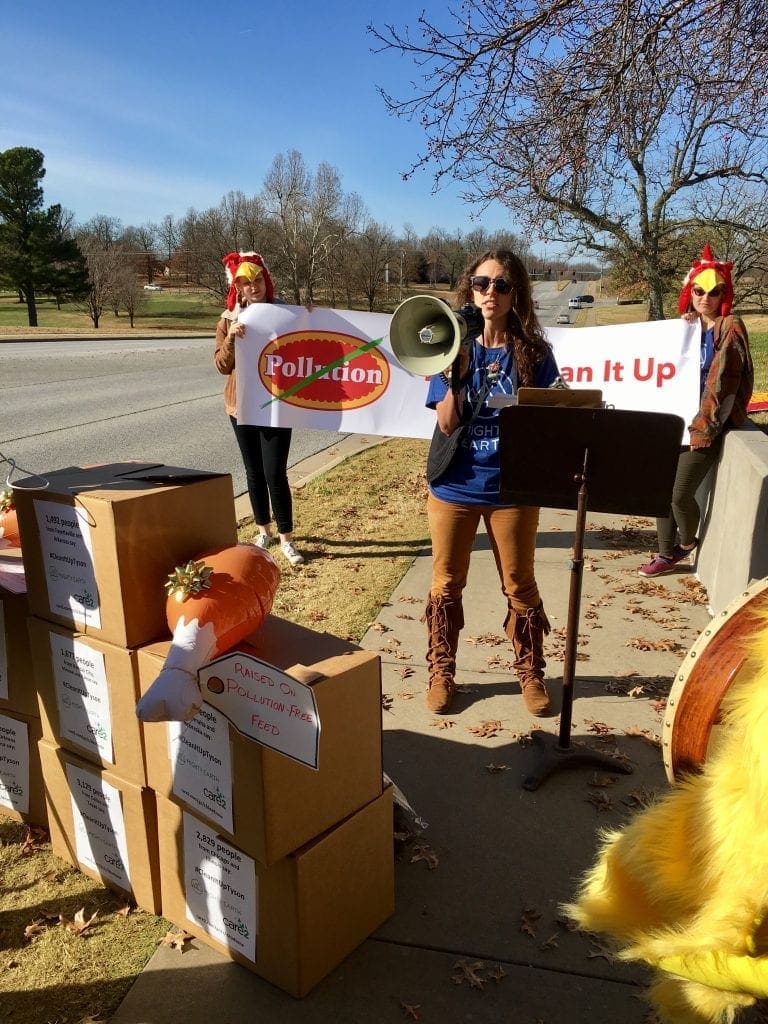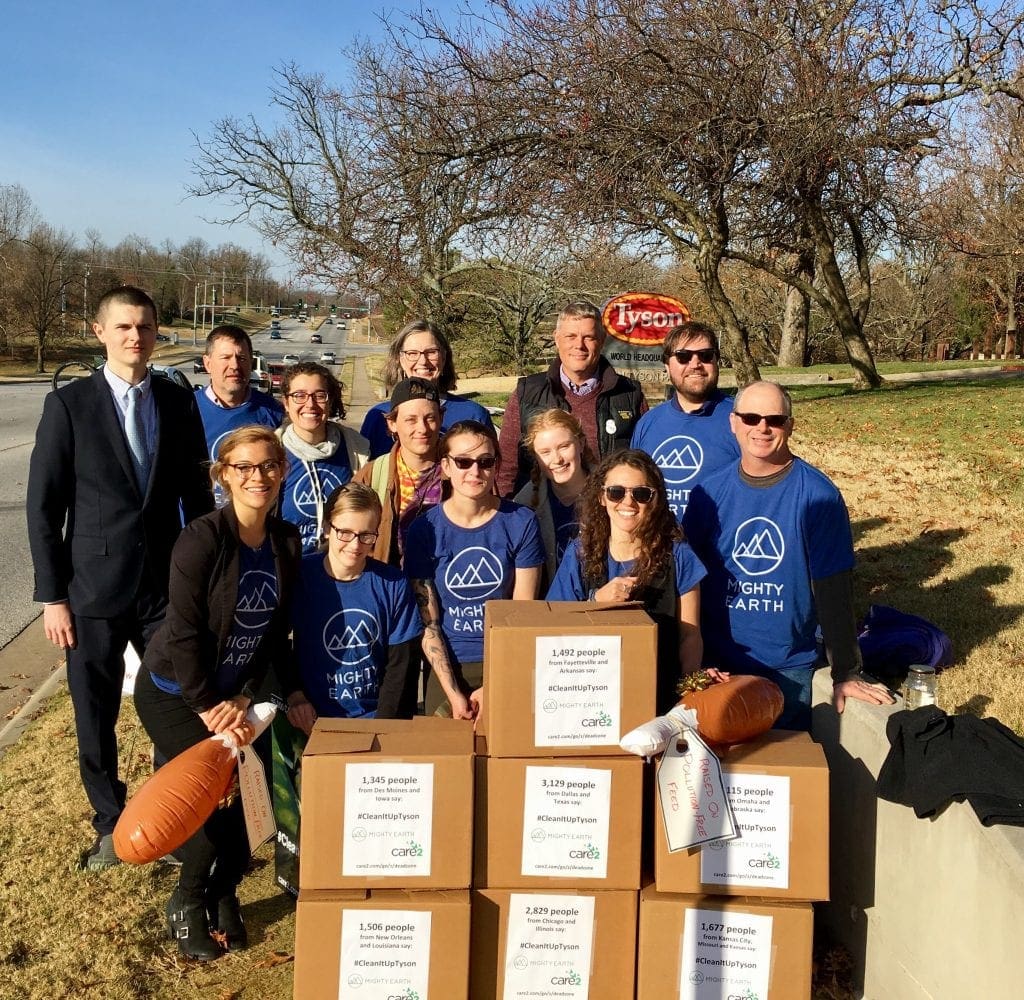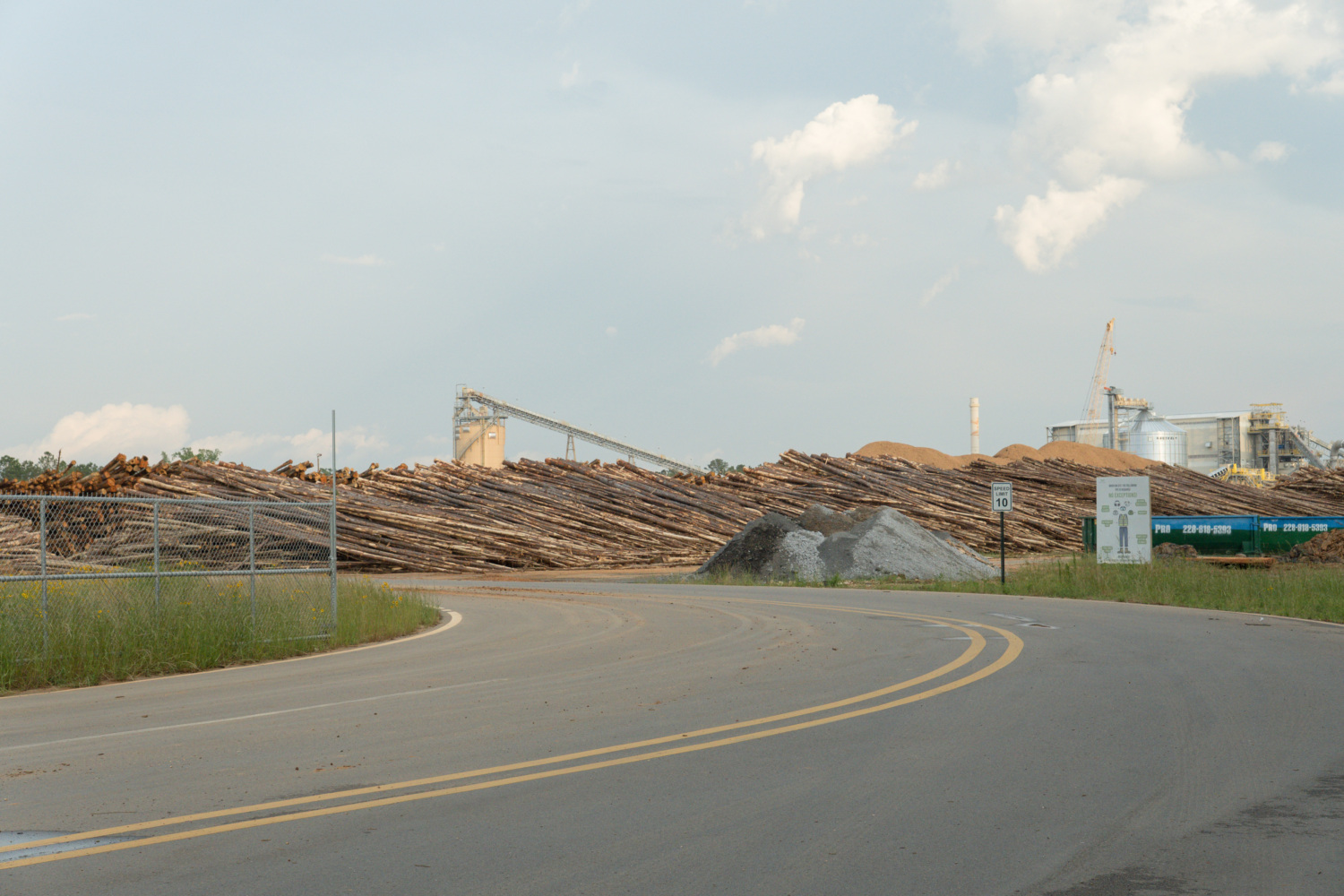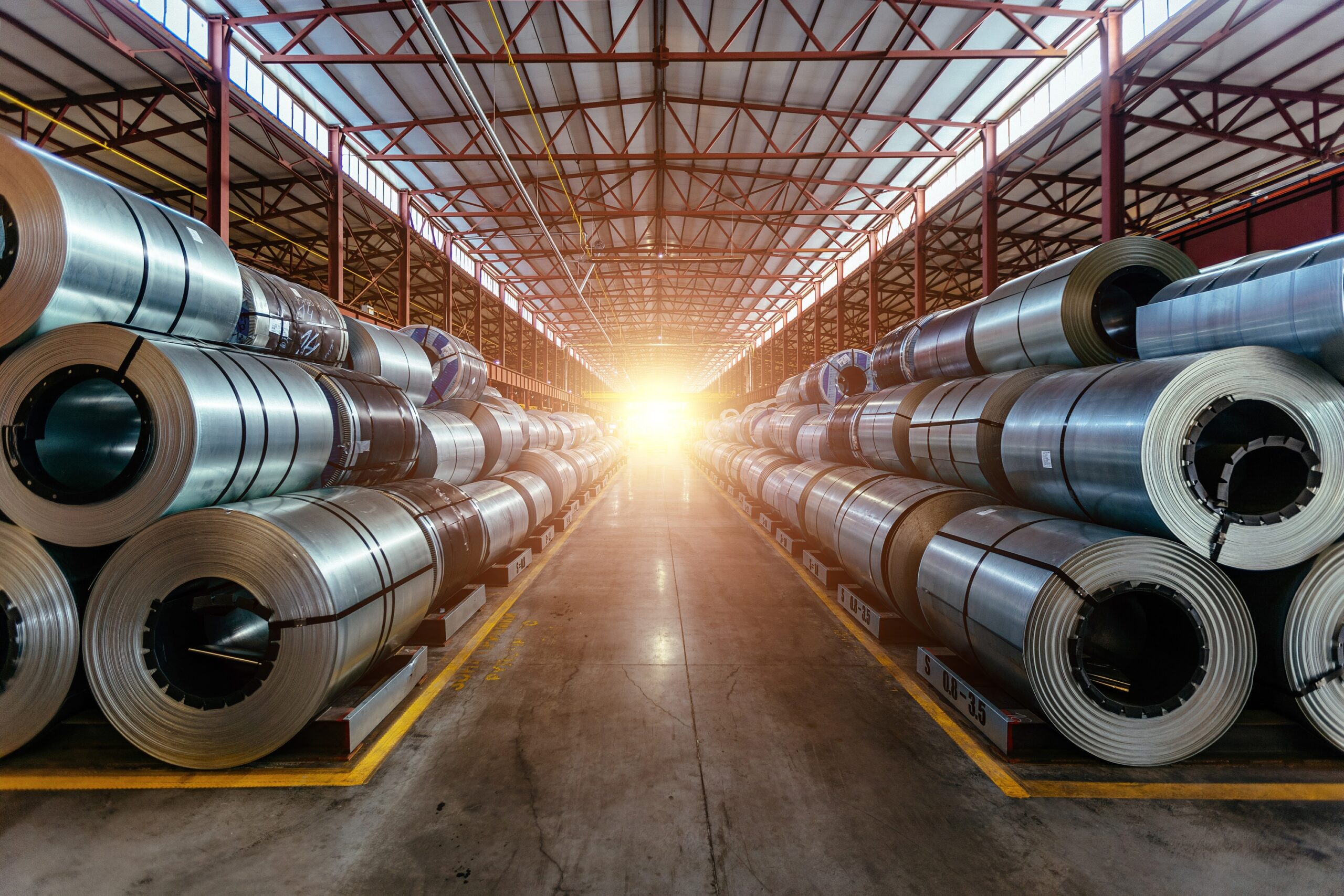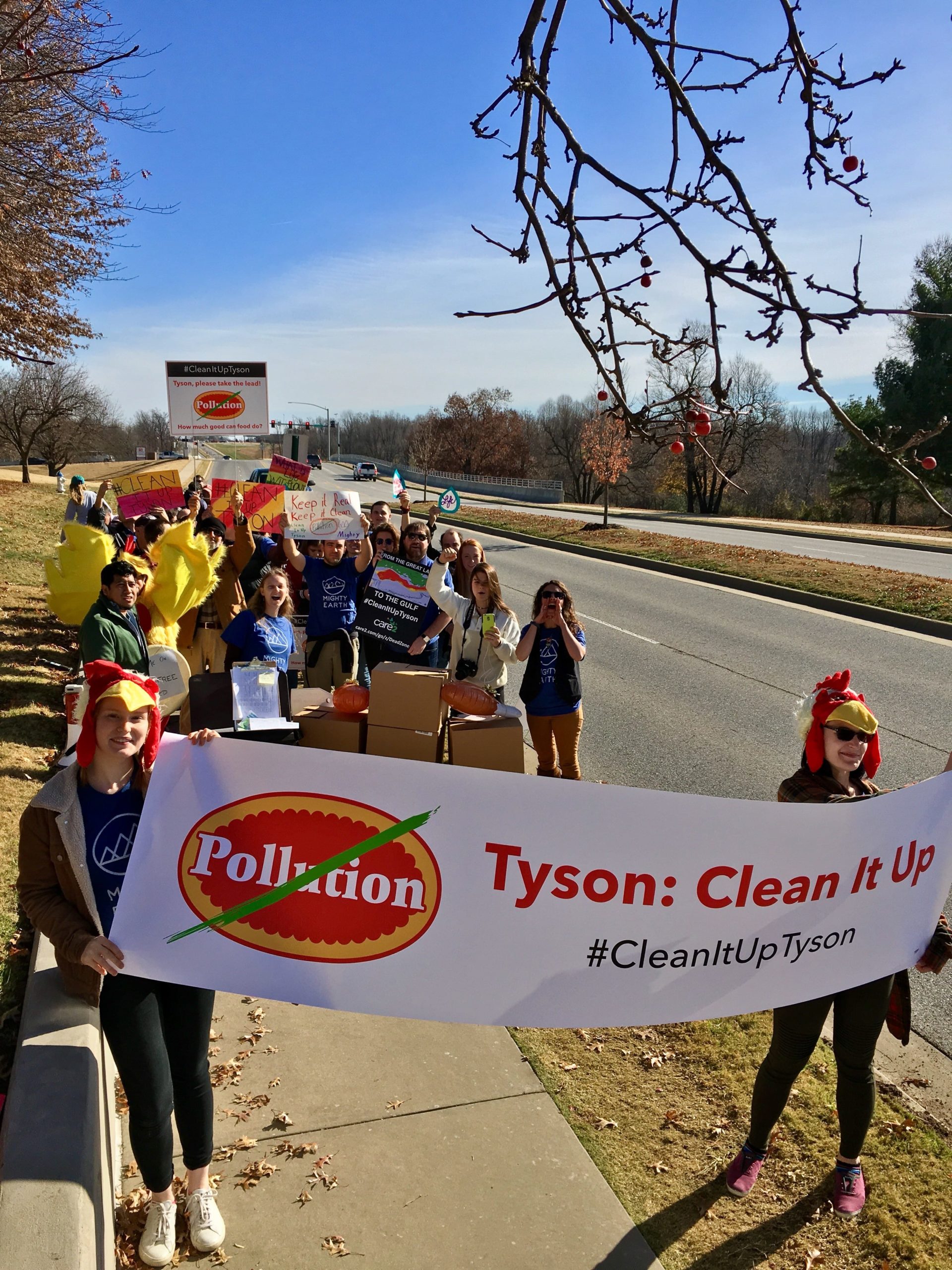
Rally at Tyson Headquarters- Activists Call on Tyson Foods to Live Up to Sustainability Promises
Springdale, AR — Today, more than 50 people gathered outside of Tyson Food’s Global Headquarters to deliver over 63,000 petitions to the company’s CEO, Tom Hayes calling for adoption of more sustainable practices. The rally in Springdale was one of seven that was held today throughout the Heartland as part of a national campaign that is working to push the country’s largest meat producer to address harmful practices in its supply chain that lead to widespread water pollution across the country.Rally attendees came from across the country to demonstrate the broad and growing support for this cause.
“Communities across America are tired of bearing the burden of Tyson’s pollution. The rapid mobilization of communities opposing a new Tyson plant in Kansas is just one example, and now these petitions show we are not alone in our frustration at the industry’s polluting impacts,” said Cecilia Pruitt from Tonganoxie, KS, the community that stopped the construction of a new Tyson facility due in part to concerns about the polluting impacts it would have on their environment.
Agricultural runoff is the single biggest contributor to water pollution in the country, the bulk of which comes from the unsustainable practices used to produce the vast quantities of feed grown to raise meat. This year, runoff pollution from feed crops and meat facilities was the primary cause of the largest dead zone on record in the Gulf of Mexico, which was about the size of New Jersey. This pollution not just an ecological problem: the toxins from agricultural runoff affects the drinking water supply of over 17 million Americans, exposing them to toxins linked to a variety of health impacts, including cancers and birth defects.
“The tens of thousands of petitions that we delivered today make it clear that people across the country want to see Tyson change, even outside of communities that are directly harmed by agricultural runoff,” said Aaron Viles, Manager of Organizing at Care2, an online petition organization that has partnered with Mighty Earth on this campaign. “Having clean water is an issue that everyone can get behind.”
Water pollution issues from agricultural runoff are worsening as the global demand for meat — and the grains required to feed it — expand. Jody Osmund, farmer and local food activist, emphasized that mitigating the pollution impacts of their supply chains is something that agribusiness corporations need to address. “The decisions about how things are done in the meat industry are concentrated in the hands of just a few companies, like Tyson. These companies determine how millions of animals are raised, what they eat, and how everything is produced. And they can decide to implement standards that make their meat better for the planet, better for our farms, and better for rural communities — and their suppliers will listen.”
The vast quantity of feed grown to raise livestock and poultry is the largest source of meat’s environmental impact- and is largely ignored by the industry. The “Clean It Up, Tyson” campaign calls for Tyson’s CEO to commit to sourcing animal feed from suppliers that practice sustainable and regenerative agricultural methods, such as growing cover cropping, using less fertilizer, diversifying crops, limiting tillage, and stopping the clearing of native ecosystems such as the iconic American prairie. There is a growing call for companies like Tyson to make this change. In addition to having the direct support of over 63,000 people, this campaign is supported by over 260 businesses and organizations that represent more than 720,600 people.
“Citizens and consumers across the country are galvanized at Tyson’s new commitment to lead on sustainability, and clearly want to see water pollution prioritized as part of that,” noted Lucia von Reusner, National Campaign Director for Mighty Earth. “A commitment to implementing practices that prevent water pollution and regenerate our soils would show America that Tyson is sincere in its public pledges to wanting to ‘show how much good food can do’ and be ‘the most sustainable protein supplier, bar none’.”
